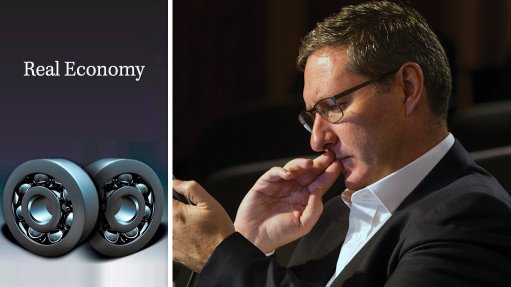
The decision by the majority of British voters to place their crosses in the box alongside ‘Leave the European Union (EU)’ in a referendum where the only question was ‘Should the UK remain a member of the EU or leave the EU?’ was obviously unexpected and shocking. That said, the economic implications are far from clear, notwithstanding the initial market turmoil that followed the vote.
Most economic commentators agree that ‘Brexit’ is unlikely to be positive for global growth, which, in the context of an already weak global economy, is obviously disturbing.
The political and social implications also appear to be mainly negative, at least in the short term. British Prime Minister David Cameron resigned immediately after ‘Bremain’ failed, the official opposition is in turmoil and it appears more than likely that Britain itself could face a break-up of its own, with Scotland expected to once again review its position in the UK. Social tensions have also increased in the wake of the Brexit vote, with ugly racial and anti-immigrant incidents occurring.
Symbolically, too, the vote is arguably a blow to the spirit of coopera- tion, partnership and integration that gained momentum in the post-Cold War era, but which has been facing stiff opposition as the reality of living in a multipolar world has taken hold. There is currently a high degree of scepticism about the ability of politicians and established institutions to act in the interests of citizens. This is revealed in the high levels of voter dissatisfaction and a rise in populist and go-it-alone politicians, as well as religious intolerance.
But Brexit also means that individual countries will have to scramble to secure their narrow, short-term interests – most probably ahead of far-sighted diplomatic solutions that will yield more sustainable and long-lasting gains for society and humanity. Indeed, this is precisely the situation South Africa now finds itself in as it jostles to secure a post-Brexit arrangement.
Strategically, this country has to ensure that it is not sidelined in the coming two years as other more powerful countries negotiate new trade agreements with the UK. In fact, it is imperative that South Africa’s trade negotiators waste no time in working on the best possible deal.
Acting in its self-interest, South Africa should start by insisting the UK extends a deal that is better than what is currently available to it through the recently signed Economic Partnership Agreement (EPA) with the EU – an arrangement that is currently awaiting ratification across Europe, as well as in Botswana, Lesotho, Mozambique, Namibia, South Africa and Swaziland.
There is surely a strong case for demanding more, given Britain’s colonial links to most of the six Southern African countries involved. There is particular scope to improve access for agricultural products over and above the improved access already negotiated under the EPA.
In addition, South Africa should also not be shy to point out to uncertain UK investors that, should they be concerned about continued EU market access, they could consider relocating to South Africa, which has secured duty- and quota-free access to the EU for most products. In other words, Brexit means that we have to be more than ruthless in pursuing our narrow interests and in making the best out of a bad situation.